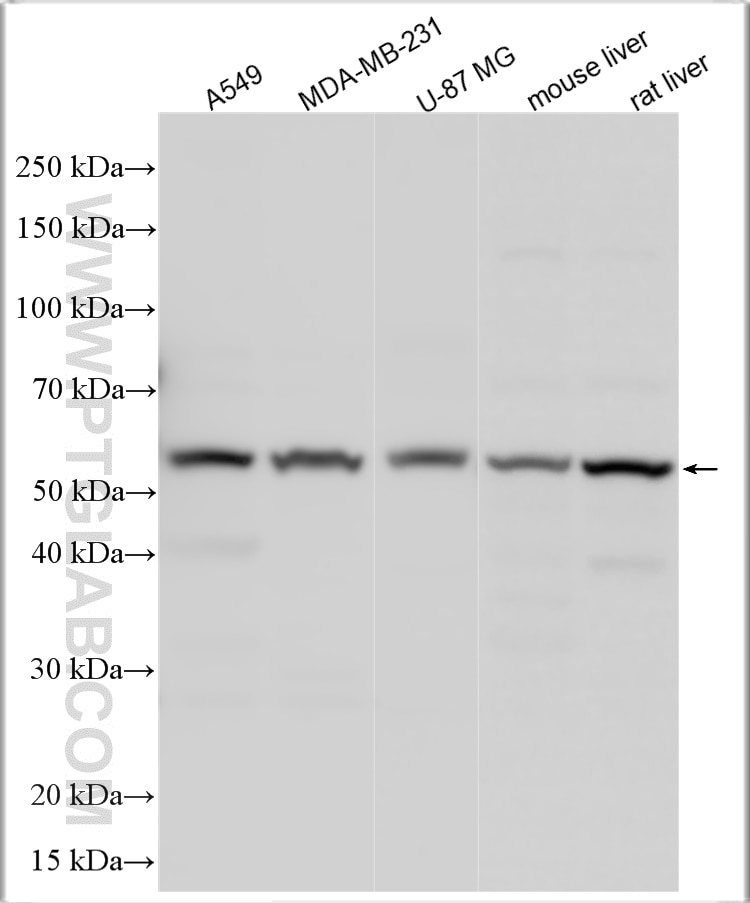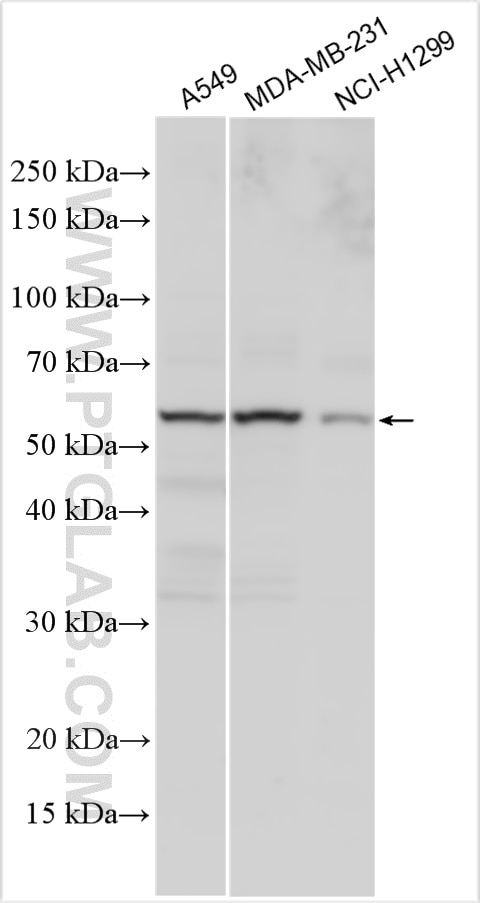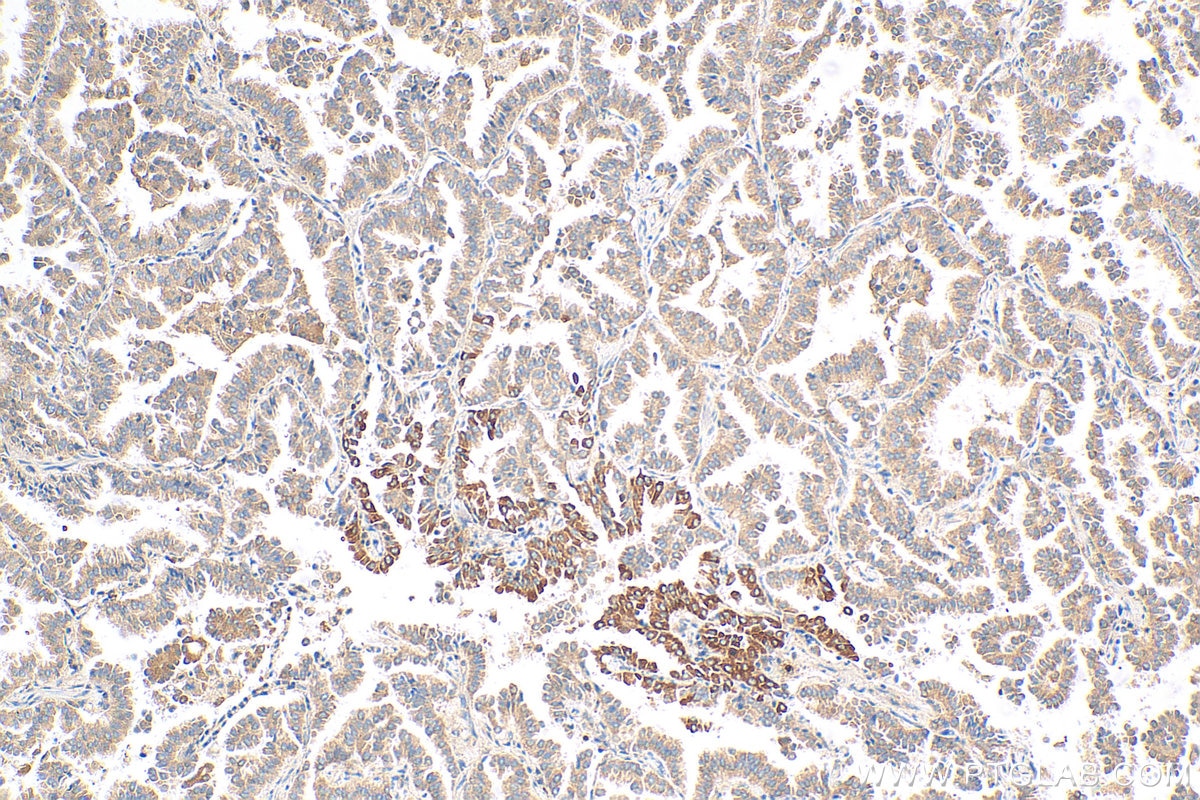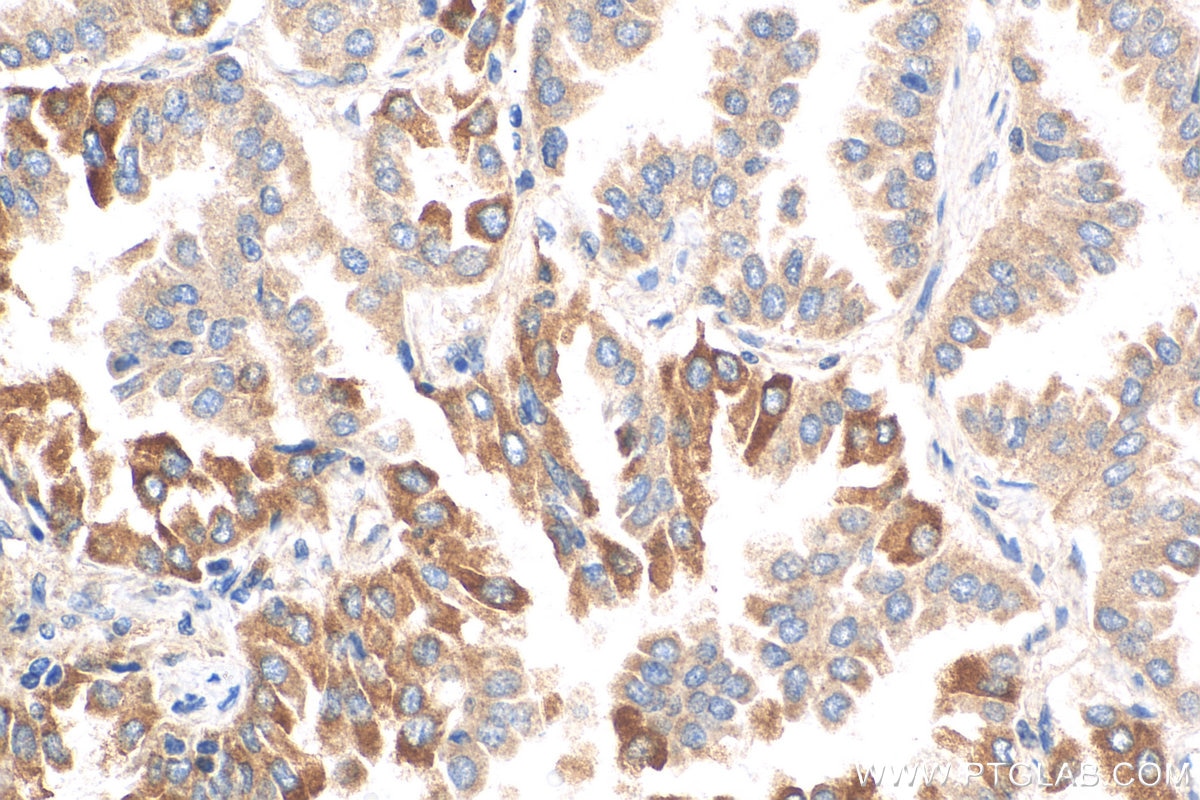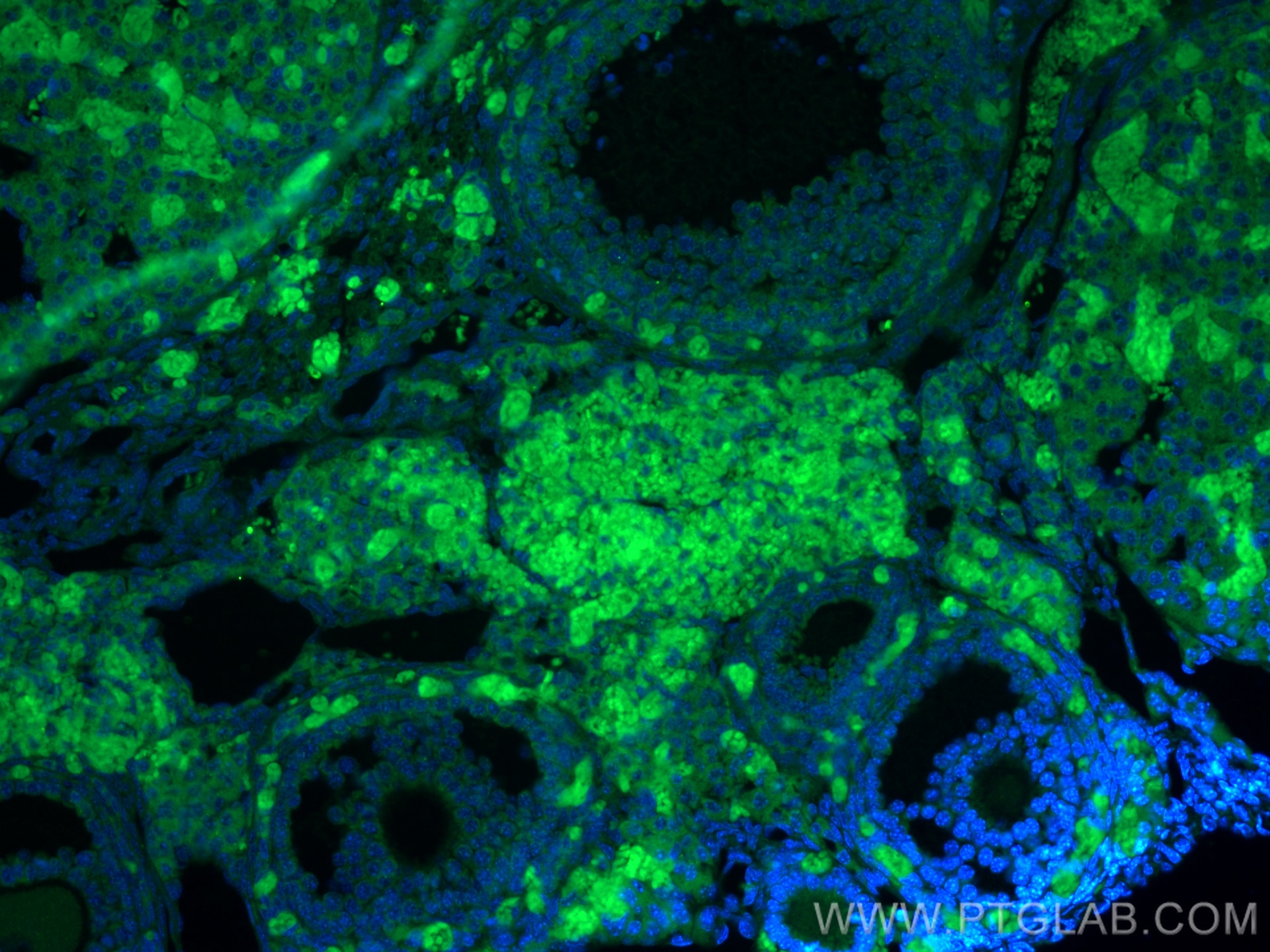TGFBR1 Polyklonaler Antikörper
TGFBR1 Polyklonal Antikörper für WB, IHC, IF-P, ELISA
Wirt / Isotyp
Kaninchen / IgG
Getestete Reaktivität
human, Maus, Ratte
Anwendung
WB, IHC, IF-P, ELISA
Konjugation
Unkonjugiert
Kat-Nr. : 30117-1-AP
Synonyme
Geprüfte Anwendungen
| Erfolgreiche Detektion in WB | A549-Zellen, MDA-MB-231-Zellen, Mauslebergewebe, NCI-H1299-Zellen, Rattenlebergewebe, U-87 MG-Zellen |
| Erfolgreiche Detektion in IHC | humanes Lungenkarzinomgewebe Hinweis: Antigendemaskierung mit TE-Puffer pH 9,0 empfohlen. (*) Wahlweise kann die Antigendemaskierung auch mit Citratpuffer pH 6,0 erfolgen. |
| Erfolgreiche Detektion in IF-P | Maus-Eierstockgewebe |
Empfohlene Verdünnung
| Anwendung | Verdünnung |
|---|---|
| Western Blot (WB) | WB : 1:500-1:3000 |
| Immunhistochemie (IHC) | IHC : 1:200-1:800 |
| Immunfluoreszenz (IF)-P | IF-P : 1:50-1:500 |
| It is recommended that this reagent should be titrated in each testing system to obtain optimal results. | |
| Sample-dependent, check data in validation data gallery | |
Veröffentlichte Anwendungen
| WB | See 8 publications below |
| IF | See 3 publications below |
Produktinformation
30117-1-AP bindet in WB, IHC, IF-P, ELISA TGFBR1 und zeigt Reaktivität mit human, Maus, Ratten
| Getestete Reaktivität | human, Maus, Ratte |
| In Publikationen genannte Reaktivität | human, Maus, Ratte |
| Wirt / Isotyp | Kaninchen / IgG |
| Klonalität | Polyklonal |
| Typ | Antikörper |
| Immunogen | TGFBR1 fusion protein Ag31620 |
| Vollständiger Name | transforming growth factor, beta receptor 1 |
| Berechnetes Molekulargewicht | 56KD |
| Beobachtetes Molekulargewicht | 56 kDa |
| GenBank-Zugangsnummer | NM_004612 |
| Gene symbol | TGFBR1 |
| Gene ID (NCBI) | 7046 |
| Konjugation | Unkonjugiert |
| Form | Liquid |
| Reinigungsmethode | Antigen-Affinitätsreinigung |
| Lagerungspuffer | PBS with 0.02% sodium azide and 50% glycerol |
| Lagerungsbedingungen | Bei -20°C lagern. Nach dem Versand ein Jahr lang stabil Aliquotieren ist bei -20oC Lagerung nicht notwendig. 20ul Größen enthalten 0,1% BSA. |
Hintergrundinformationen
TGFBR1 (TGF-beta receptor type-1) encodes a serine/threonine kinase receptor for transforming growth factor-beta. TGFB1, TGFB2 and TGFB3 signals are transduced from the cell surface to the cytoplasm and regulate lots of physiological and pathological processes including cell cycle arrest in epithelial and hematopoietic cells, control of mesenchymal cell proliferation and differentiation, wound healing, extracellular matrix production, immunosuppression and carcinogenesis. Mutations in both TGFBR2 and TGFBR1 were associated with early onset and aggressive thoracic aortic disease with MFS-like skeletal features, but also hypertelorism, craniosynostosis, developmental delay, cleft palate and bifid uvula, congenital heart disease and aneurysms, and dissections throughout the arterial tree with marked arterial tortuosity (PMID: 15731757, PMID: 27879313).
Protokolle
| PRODUKTSPEZIFISCHE PROTOKOLLE | |
|---|---|
| WB protocol for TGFBR1 antibody 30117-1-AP | Protokoll herunterladen |
| IHC protocol for TGFBR1 antibody 30117-1-AP | Protokoll herunterladenl |
| IF protocol for TGFBR1 antibody 30117-1-AP | Protokoll herunterladen |
| STANDARD-PROTOKOLLE | |
|---|---|
| Klicken Sie hier, um unsere Standardprotokolle anzuzeigen |
Publikationen
| Species | Application | Title |
|---|---|---|
Theranostics Polycomb repressive complex 1 modulates granulosa cell proliferation in early folliculogenesis to support female reproduction | ||
J Nanobiotechnology Determining M2 macrophages content for the anti-tumor effects of metal-organic framework-encapsulated pazopanib nanoparticles in breast cancer | ||
Nat Commun Targeting the transmembrane cytokine co-receptor neuropilin-1 in distal tubules improves renal injury and fibrosis | ||
Mol Cell Biochem Lnc PVT1 facilitates TGF-β1-induced human cardiac fibroblast activation in vitro and ISO-induced myocardial fibrosis in vivo through regulating MYC | ||
Front Pharmacol Isoliensinine suppressed gastric cancer cell proliferation and migration by targeting TGFBR1 to regulate TGF-β-smad signaling pathways | ||
Epigenetics ANRIL upregulates TGFBR1 to promote idiopathic pulmonary fibrosis in TGF-β1-treated lung fibroblasts via sequestering let-7d-5p |
